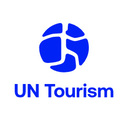Middle East & North Africa tourism consolidates recovery

International tourism in the Middle East and North Africa showed clear signs of recovery in 2017 with growths of 5% and 13%, respectively. Against this backdrop, tourism ministers, Spanish authorities and private sector gathered to discuss future tourism prospects at the Ministerial Round Table on Tourism Development in the MENA Region, during the Madrid International Tourism Fair in Spain (18 January, FITUR Madrid).
Organized by the World Tourism Organization (UNWTO) and Casa Árabe, the public consortium headed by the Spanish Ministry of Foreign Affairs, the event focused on current trends and short term prospects in the region and discussed policies and strategies for consolidating recovery and to stepping up tourism's contribution to inclusive and sustainable socioeconomic development.
Opening the event, UNWTO Secretary-General, Zurab Pololikashvili, said that "The MENA holds a strong tourism potential. The region has proven yet again its resilience and demand will continue to recover as consumer confidence rises and rises. There are many reasons for optimism and I come into this meeting full of confidence for the region's future. UNWTO forecasts point to MENA receiving 195 million international tourists by 2030".
Participating in the debate were H.E. Mr. Zayed R. Alzayani, Minister of Industry, Commerce and Tourism of Bahrain, Mr. Hesham El Demeiry, Chairman of the Egyptian Tourist Authority, Mr. Abdel Razzaq Arabiyat, Managing Director of Jordan Tourism Board, H.E. Mr. Avedis Guidanian, Minister of Tourism of Lebanon, H.E. Ms. Rula Ma'ayah, Minister of Tourism and Antiquities of Palestine and H.E. Mr. Mohamed Al Muhairi, Undersecretary for Tourism at the Ministry of Economy of the United Arab Emirates.
According to the latest UNWTO International Tourism Barometer, international arrivals to the Middle East grew by 5% and by 13% to North Africa in 2017.
About UN Tourism
The World Tourism Organization (UN Tourism) is the United Nations agency responsible for the promotion of responsible, sustainable and universally accessible tourism.
As the leading international organization in the field of tourism, UN Tourism promotes tourism as a driver of economic growth, inclusive development and environmental sustainability and offers leadership and support to the sector in advancing knowledge and tourism policies worldwide.
Our Priorities
Mainstreaming tourism in the global agenda: Advocating the value of tourism as a driver of socio-economic growth and development, its inclusion as a priority in national and international policies and the need to create a level playing field for the sector to develop and prosper.
Promoting sustainable tourism development: Supporting sustainable tourism policies and practices: policies which make optimal use of environmental resources, respect the socio-cultural authenticity of host communities and provide socio-economic benefits for all.
Fostering knowledge, education and capacity building: Supporting countries to assess and address their needs in education and training, as well as providing networks for knowledge creation and exchange.
Improving tourism competitiveness: Improving UN Tourism Members' competitiveness through knowledge creation and exchange, human resources development and the promotion of excellence in areas such as policy planning, statistics and market trends, sustainable tourism development, marketing and promotion, product development and risk and crisis management.
Advancing tourism's contribution to poverty reduction and development: Maximizing the contribution of tourism to poverty reduction and achieving the SDGs by making tourism work as a tool for development and promoting the inclusion of tourism in the development agenda.
Building partnerships: Engaging with the private sector, regional and local tourism organizations, academia and research institutions, civil society and the UN system to build a more sustainable, responsible and competitive tourism sector.
Our Structure
Members: An intergovernmental organization, UN Tourism has 160 Member States, 6 Associate Members, 2 Observers and over 500 Affiliate Members.
Organs: The General Assembly is the supreme organ of the Organization. The Executive Council take all measures, in consultation with the Secretary-General, for the implementation of the decisions and recommendations of the General Assembly and reports to the Assembly.
Secretariat: UN Tourism headquarters are based in Madrid, Spain. The Secretariat is led by the Secretary-General and organized into departments covering issues such as sustainability, education, tourism trends and marketing, sustainable development, statistics and the Tourism Satellite Account (TSA), destination management, ethics and risk and crisis management. The Technical Cooperation and Silk Road Department carries out development projects in over 100 countries worldwide, while the Regional Departments for Africa, the Americas, Asia and the Pacific, Europe and the Middle East serve as the link between UN Tourism and its 160 Member States. The Affiliate Members Department represents UN Tourism's 500 plus Affiliate members.
Marcelo Risi
UNWTO Communications & Publications Programme
(+34) 91 567 81 60
UN Tourism
